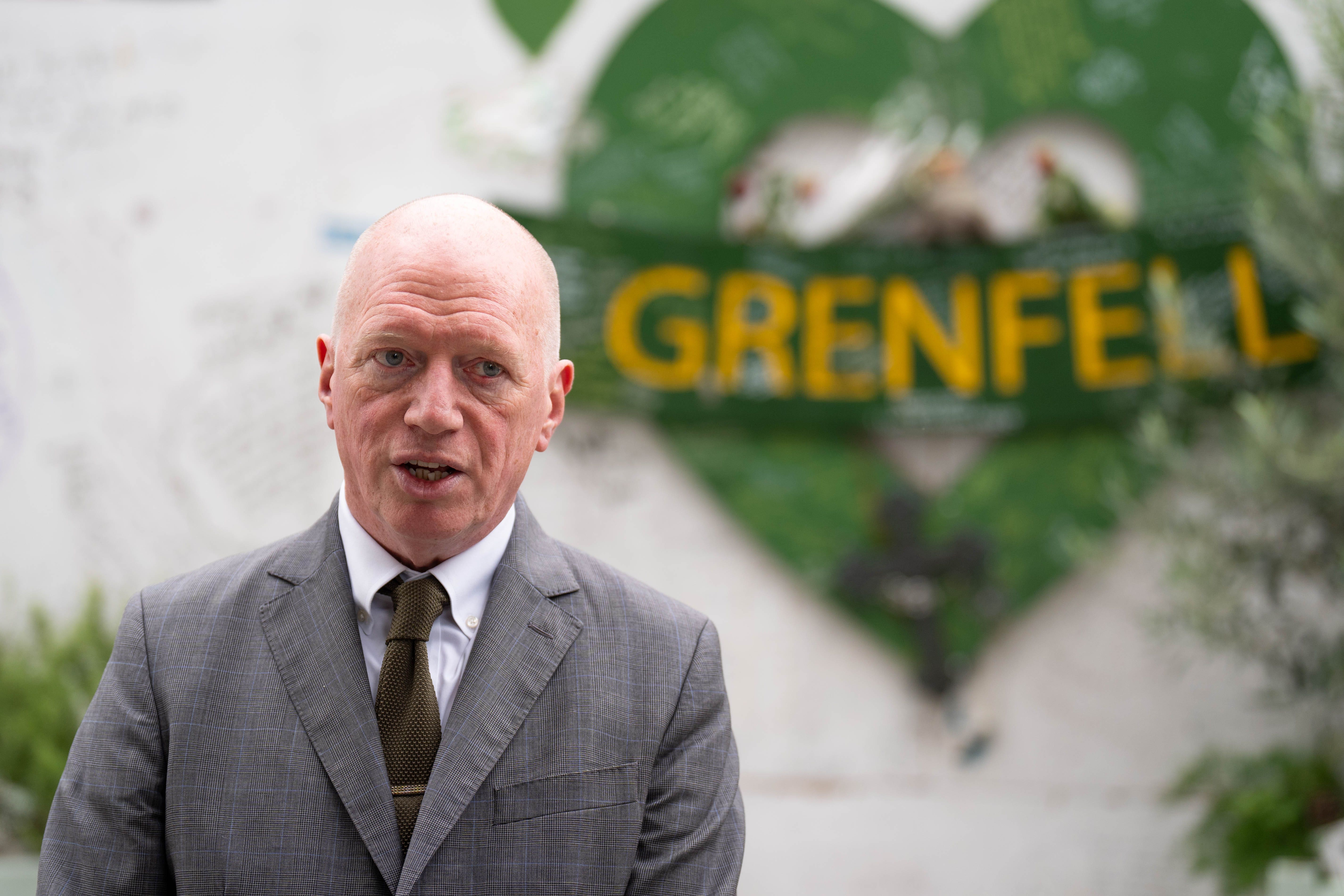Government played ‘shocking’ role in building deregulation before Grenfell fire
Speaking at the Grenfell Memorial Wall in west London, Fire Brigades Union general secretary Matt Wrack spoke about the inquiry report.

The Government played a “shocking” role in deregulating building safety before the Grenfell Tower fire, the Fire Brigades Union (FBU) chief has said.
The near-1,700 page public inquiry report into the blaze was published on Wednesday, and said the disaster was “the culmination of decades of failure” by the government and other construction industry bodies to sufficiently investigate and act on the dangers of using combustible material in high-rise buildings.
Speaking at the Grenfell Memorial Wall in west London on Wednesday, Matt Wrack, general secretary of the FBU, said the union was “vindicated” by its findings, particularly its criticisms of the deregulation of the building industry.
The report says that by 2016, a year before the Grenfell fire, the government was “well aware” of the risks of using combustible cladding panels and insulation, particularly in high-rise buildings, “but failed to act on what it knew”.
A drive within government, years before the fire, for deregulation, meant concerns about the safety of life had been “ignored, delayed or disregarded”, the report said, despite the deadly Lakanal House fire which killed six people in 2009.
Mr Wrack said: “That will be shocking to people reading press reports about the inquiry and its findings, that for decades we’ve had ministers responsible for building safety, for fire safety policy, and prime ministers who have overseen an agenda determined to get rid of regulations, and those regulations were the means by which buildings were kept safe for the people living in them.
“It is shocking to hear that we’ve had governments who have overseen the deregulation and turning buildings into unsafe places to live.”
He called on Prime Minister Sir Keir Starmer to “take firm action” to “fundamentally alter the building safety regime” in the UK, adding that the Government “can’t afford to miss that opportunity”.
Mr Wrack highlighted the fire in Dagenham, east London, last month, which happened in a building undergoing the removal of unsafe cladding, as an example of this continued danger.
Asked whether he thought a fire on the scale of the Grenfell blaze, which killed 72 people, could happen again, he said: “Obviously, we all hope that there will never be another Grenfell, but the facts, the statistics, show that there are thousands of buildings where there remain systems of unsafe cladding, or there remain other building or fire safety defects that have not been addressed.
It is shocking to hear that we’ve had governments who have overseen the deregulation and turning buildings into unsafe places to live
“Of those identified in England, only about half have had any work done on them, half of those buildings have had no remediation work whatsoever done.”
In a statement on Wednesday, the FBU called for the systems responsible for “delivering building safety” to be brought under public ownership.
Mr Wrack said the inquiry report highlighted a “very clear contradiction” within agencies that bear responsibilities for safety regulations as well as commercial interests.
“In our view, there should be a complete separation between the commercial interest of a developer or of someone selling products to the construction industry, and the people regulating the sale of those products, or the system by which those products are applied to buildings.
“The profit motive should be completely taken out of the system of regulation of safety,” he said.
The Prime Minister said the Government will “look at” all of the report’s recommendations “in detail” and respond within six months, as it pledged to also update Parliament annually on progress against its commitments.